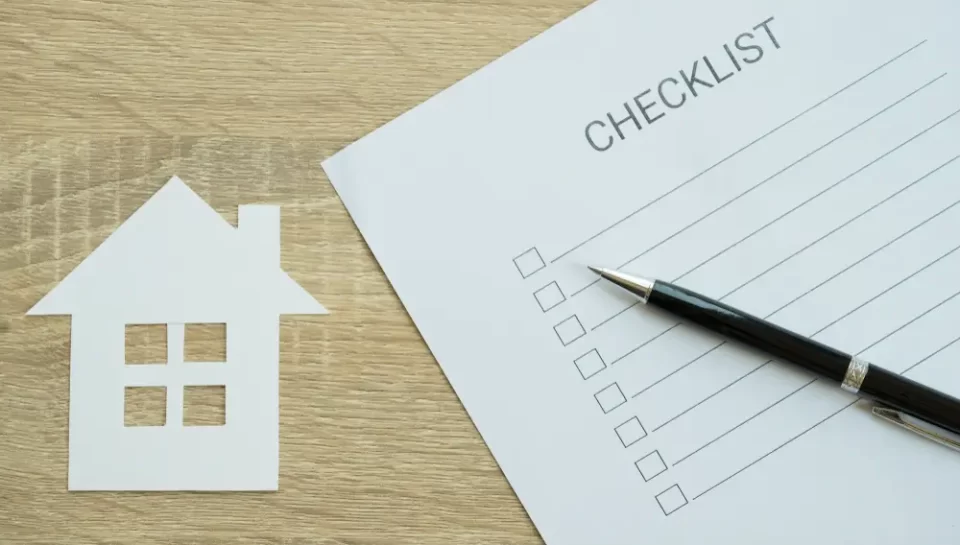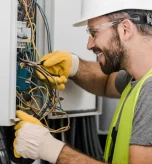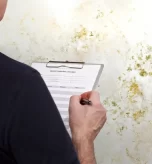Why a Home Inspection is Essential?
You’ve placed a bid on a house, and your offer has been accepted—exciting, right? But before celebrating, it’s important to ensure the property is worth the investment. A home inspection helps identify potential issues that could affect the safety, functionality, and value of your future home.
Professional home inspectors use a detailed checklist to assess the property’s condition. This checklist helps buyers negotiate the price, request necessary repairs, or even reconsider their purchase.
Below, we break down the key areas covered in a home inspection checklist.
What is a Home Inspection Checklist?
A home inspection checklist is a comprehensive guide used by professionals to examine a property before finalizing a sale. It includes essential components that must be checked to avoid costly surprises after purchase. While DIY home inspections are common, they cannot match the expertise of a licensed home inspector who knows how to detect hidden issues.
Professional home inspectors evaluate over 1,000 different items, but here are the most critical areas:
Read More: Common Mistakes to Avoid When Choosing Inspectors
Key Areas Covered in a Home Inspection
1. HVAC System (Heating, Ventilation, and Air Conditioning)
The HVAC system is one of the most crucial components of a home, especially in places like California, where extreme temperatures can be a concern. The inspector checks:
✔ Thermostat functionality
✔ Air conditioning unit performance
✔ Furnace and heat pump efficiency
✔ Gas leaks
✔ Overall ventilation system condition
HVAC inspections can take up to 1.5 hours, ensuring the system operates safely and efficiently.
2. Roof and Ceiling
A home’s roof and ceiling play a major role in protecting the structure from weather damage. Inspectors assess:
✔ Roof slopes and stability
✔ Missing or curling shingles
✔ Cracks in sealants
✔ Water stains on ceilings
✔ Structural soundness
Nearly 39% of homeowners experience roof issues, making this a critical part of the inspection.
3. Legal and General Documents
Beyond structural issues, the legal aspect of home buying is equally important. The inspector verifies:
✔ Property ownership documents
✔ Repair and warranty records
✔ Permits for renovations or additions
Checking these documents prevents fraud and ensures you are making a secure investment.
4. Plumbing, Water Drainage, and Leakage
Water damage is one of the most expensive problems homeowners face. Inspectors look for:
✔ Leaks in pipes, sinks, and toilets
✔ Clogged or inefficient drainage systems
✔ Water pressure inconsistencies
✔ Mold or moisture buildup
Unchecked plumbing issues can weaken a home’s foundation and lead to costly repairs.
5. Electrical and Wiring Issues
Electrical problems can pose Serious Safety Hazards, including house fires. Inspectors check:
✔ Condition of wiring throughout the home
✔ Power supply efficiency
✔ Proper grounding of electrical systems
✔ Circuit breaker functionality
Ensuring the electrical system is safe and up to code is a top priority.
6. Pest Inspection
Pests such as termites, rodents, and ants can cause severe damage. Inspectors assess:
✔ Signs of termite infestations
✔ Pest activity in walls, attics, and basements
✔ Damage to wooden structures
Pest problems often go unnoticed by untrained eyes, but professional inspectors can spot early warning signs before it’s too late.
7. Structural Integrity
The foundation and framework of a home must be stable and secure. Home inspectors check for:
✔ Cracks in walls or flooring
✔ Bowing or leaning walls
✔ Deterioration in the foundation
✔ Signs of previous structural repairs
Ignoring structural concerns can lead to major expenses in the future.
8. Septic System Evaluation
The septic system is a critical part of a home’s plumbing. Inspectors look for:
✔ Signs of leaks or overflows
✔ Water level monitoring in septic tanks
✔ Proper functioning of flushing systems
A thorough septic inspection helps prevent expensive plumbing disasters.
Read More: How to Keep Your Fireplace Safe
How to Find the Best Home Inspector
Choosing the right home inspector is essential to getting an accurate and honest report. Here’s how to find the best one:
✔ Check Credentials – Ensure they are licensed and certified.
✔ Read Online Reviews – Look for trusted reviews on platforms like Google or Yelp.
✔ Compare Prices – Get multiple quotes and evaluate the value offered.
✔ Ask for Referrals – Recommendations from friends or real estate agents can be helpful.
Pro Tip:
If you’re looking for a reliable home inspection in California, consider Key Property Home Inspection Group for expert evaluations.
Final Thoughts
A home inspection is not just a formality it’s an essential step in making a smart investment. By ensuring your future home meets safety and structural standards, you can avoid expensive surprises and negotiate a fair price.
Don’t skip this crucial step. Whether you’re a first-time homebuyer or a real estate investor, a comprehensive home inspection will provide peace of mind and help you make an informed decision.





